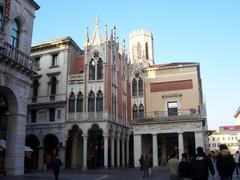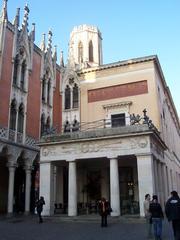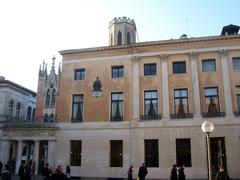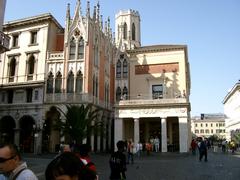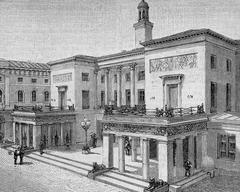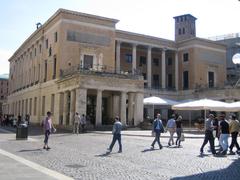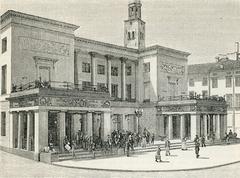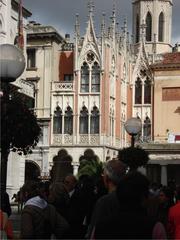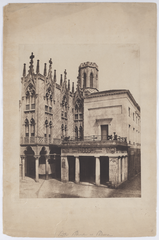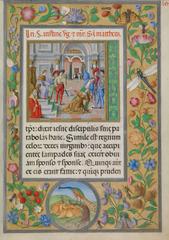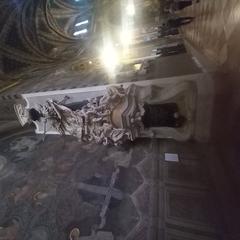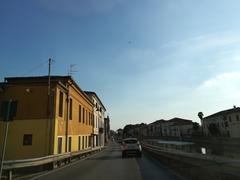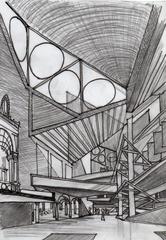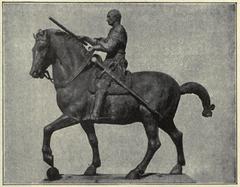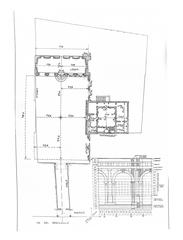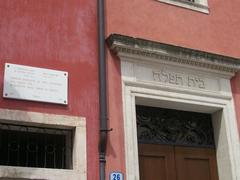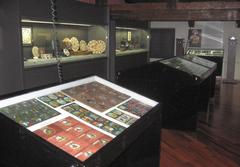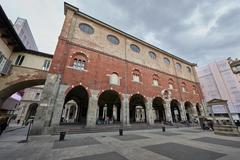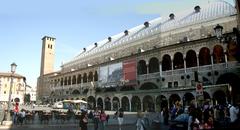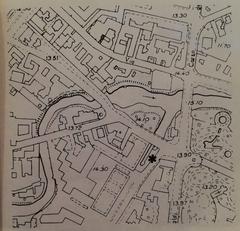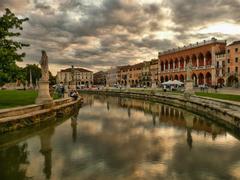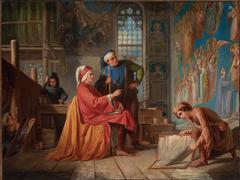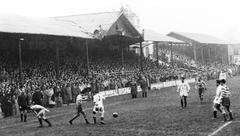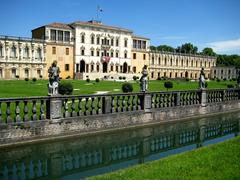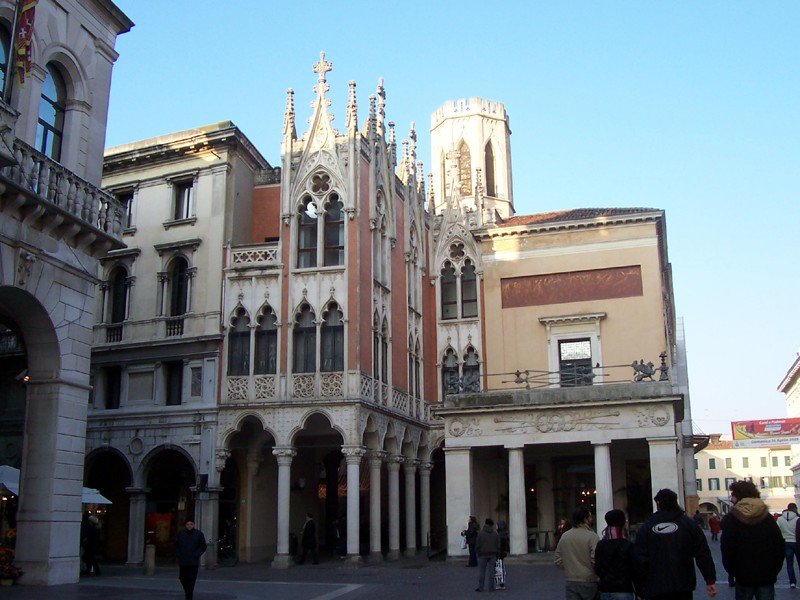
Pedrocchi Café Padua: Visiting Hours, Tickets, and Historical Significance
Date: 15/06/2025
Introduction
Caffè Pedrocchi, situated in the heart of Padua, Italy, is a celebrated historic café renowned for its neoclassical architecture, rich cultural legacy, and pivotal role in Italian history. Established in 1831 by Antonio Pedrocchi and designed by Giuseppe Jappelli, it quickly became a hub for artists, students, writers, and revolutionaries. Known as the “café without doors” due to its 24/7 accessibility until 1916, Pedrocchi Café has been a microcosm of Padua’s dynamic society and a cradle for the Italian Risorgimento. Today, it is not only a vibrant meeting place but also a cultural and historical landmark where visitors can enjoy local specialties and explore the Museo del Risorgimento housed within its walls (Italy Magazine; Academia.edu; Caffè Pedrocchi official site; Appetito Magazine).
Table of Contents
- Origins and Architectural Development
- The “Café Without Doors”: A Symbol of Openness
- Role in the Risorgimento and Political Movements
- Literary and Artistic Patronage
- Architectural and Interior Highlights
- Visitor Information: Opening Hours and Tickets
- Culinary Experience: Signature Coffee and Menu
- Accessibility and Visitor Tips
- Events, Guided Tours, and Special Experiences
- Nearby Attractions in Padua
- Frequently Asked Questions (FAQ)
- Summary and Travel Recommendations
- References
1. Origins and Architectural Development
Caffè Pedrocchi’s story began in the early 19th century when Antonio Pedrocchi, the son of a successful coffee merchant, envisioned a grand venue for Padua’s intellectual and social life. Construction started in 1826 under architect Giuseppe Jappelli, a leading figure in Italian neoclassicism. The café officially opened in 1831, immediately recognizable for its elegant façade, tall columns, and harmonious blend of neoclassical and eclectic styles. The ground floor was dedicated to the café, while the upper floors served as reading rooms and salons for meetings and cultural events, fulfilling Pedrocchi’s vision of a gathering place for all social classes (Italy Magazine; Caffè Pedrocchi official site).
2. The “Café Without Doors”: A Symbol of Openness
From its inauguration, Caffè Pedrocchi was famously known as the “café without doors” (“il caffè senza porte”), remaining open day and night until 1916. This unique policy, both literal and symbolic, underscored the café’s commitment to inclusivity and the free exchange of ideas. The Green Room (Sala Verde) became synonymous with intellectual discussion, welcoming patrons without any obligation to purchase—a revolutionary concept in 19th-century Italy (Appetito Magazine; Trust & Travel).
3. Role in the Risorgimento and Political Movements
Caffè Pedrocchi played a crucial part in the Risorgimento, Italy’s 19th-century movement for unification and independence. Its salons and reading rooms became meeting points for patriots, writers, and students from the nearby University of Padua. The café witnessed pivotal moments, including the 1848 uprising when Austrian troops fired on students inside, leaving bullet holes still visible in the White Room—a powerful testament to its role in Italian history (Academia.edu; Zainoo).
4. Literary and Artistic Patronage
Over the centuries, Caffè Pedrocchi has welcomed renowned figures such as Lord Byron, Stendhal, Gabriele D’Annunzio, Maxim Gorky, and Eleonora Duse. Its reading rooms became informal salons where literature, philosophy, and the arts flourished. The tradition continues today with book presentations, art exhibitions, and cultural gatherings (Italy Magazine; My Corner of Italy).
5. Architectural and Interior Highlights
Caffè Pedrocchi’s neoclassical design extends throughout its three main ground-floor salons: Green, White, and Red—each symbolizing a color of the Italian flag and historically associated with different social groups. The upper Piano Nobile features ten uniquely styled rooms and houses the Museo del Risorgimento e Contemporanea dell’Età, chronicling Padua’s history from the Risorgimento to World War II (Snoopsmaus; Turismo Padova).
6. Visitor Information: Opening Hours and Tickets
- Café Hours: Open daily, typically from 8:00 AM to 10:00 PM (hours may vary during holidays or events; check the official website for updates).
- Museum Admission: Entry to the café is free. Tickets for the Museo del Risorgimento and guided tours are generally €4–€10.
- Reservations: Recommended for dining, tours, and special events, especially on weekends or busy periods.
- Guided Tours: Special “Pedrocchi Experience” tours include visits to the Piano Nobile and museum, ending with a signature coffee tasting (Caffè Pedrocchi official site).
7. Culinary Experience: Signature Coffee and Menu
Signature Drinks and Desserts
- Caffè Pedrocchi: A large 100% Arabica espresso layered with mint cream and bitter cocoa, served unstirred to preserve distinct flavors (Caffè Pedrocchi official site).
- Pedrocchi Summer Coffee: A chilled espresso with mint cream and cocoa.
- Torta Pedrocchi: A chocolate, coffee, and mint cake inspired by the café’s signature flavors.
- Zabaione Stendhal: A creamy dessert named for novelist Stendhal, made with egg yolks, wine, and orange blossom essence (Amo Italy).
Savory Cuisine
The menu celebrates Venetian tradition and seasonal ingredients:
- Tagliolini al Caffè con Salsa di Gamberi (coffee-flavored pasta with shrimp sauce)
- Lasagne alle Verdure di Stagione (vegetable lasagna)
- Baccalà in Tegame (Venetian-style cod)
- Classic pizzas and lighter fare (The Eat Log)
Wine and Aperitifs
An extensive wine list features Veneto DOC and DOCG wines, classic Italian spritzes, and the modern P31 green aperitif (Snoopsmaus).
8. Accessibility and Visitor Tips
- Accessibility: The main floor is wheelchair accessible, with ramps and elevators. Staff are available to assist guests with special needs.
- Dress Code: Smart-casual attire is recommended.
- Student Tradition: Once, students avoided entering before graduation—a superstition now replaced by the café’s popularity among university visitors (Turismo Padova).
- Photography: Allowed, but please respect other guests and posted guidelines.
9. Events, Guided Tours, and Special Experiences
Caffè Pedrocchi hosts cultural events, tastings, concerts, and the “Pedrocchi Experience” guided tour, which includes the museum and a coffee tasting. Check the official events page or inquire on-site for schedules.
10. Nearby Attractions in Padua
Pedrocchi Café is centrally located near:
- University of Padua (founded 1222)
- Scrovegni Chapel
- Prato della Valle
- Basilica di Sant’Antonio
Combine your visit with a walking tour of Padua’s top historical sites (Padua Tourism Portal).
11. Frequently Asked Questions (FAQ)
Q: What are Pedrocchi Café’s opening hours?
A: Typically 8:00 AM to 10:00 PM daily; check the official site for updates.
Q: Is there an entry fee for the café?
A: Entry to the café is free; museum admission is €4–€10.
Q: Are reservations required?
A: Recommended for dining and tours, particularly on weekends.
Q: Is the café wheelchair accessible?
A: Yes, accessible facilities and staff assistance are available.
Q: Can I take photos inside?
A: Yes, but please be mindful of other guests and signage.
12. Summary and Travel Recommendations
Caffè Pedrocchi remains a living monument to Padua’s vibrant intellectual, cultural, and political heritage. From its role as a progressive social hub and “café without doors” to its enduring reputation for culinary excellence, it offers visitors a unique blend of tradition and modernity. Free entry, accessible facilities, and a central location make it a perfect starting point for exploring Padua’s historical treasures. Enhance your visit with a guided tour, sample the world-famous Pedrocchi coffee, and immerse yourself in a setting where Italian history and culture come alive. For up-to-date information, event details, and travel tips, use the Audiala app or visit the Caffè Pedrocchi official website.
13. References
- Dinner and More: Historic Pedrocchi Cafe, Padua, Italy, Italy Magazine, 2024 (Italy Magazine)
- Literature, politics and coffee houses in Padova during the Risorgimento: The Caffè Pedrocchi, Academia.edu, 2024 (Academia.edu)
- Caffè Pedrocchi Official Site, 2025 (Caffè Pedrocchi official site)
- Discover Caffè Pedrocchi: Visiting Hours, Tickets, and Cultural Highlights in Padua, Appetito Magazine, 2024 (Appetito Magazine)
- Caffè Pedrocchi: Visiting Hours, Tickets & Insider Tips for Exploring Padua’s Historic Café, Snoopsmaus, 2024 (Snoopsmaus)
- Visiting Pedrocchi Café in Padua: Hours, Tickets, Culinary Experience & History, Amo Italy, 2024 (Amo Italy)
- Padua Tourism Portal, 2025 (Padua Tourism Portal)
- The Eat Log, Padua Travel and Food Guide, 2024 (The Eat Log)
- Zainoo - Caffè Pedrocchi Padua, 2025 (Zainoo)
